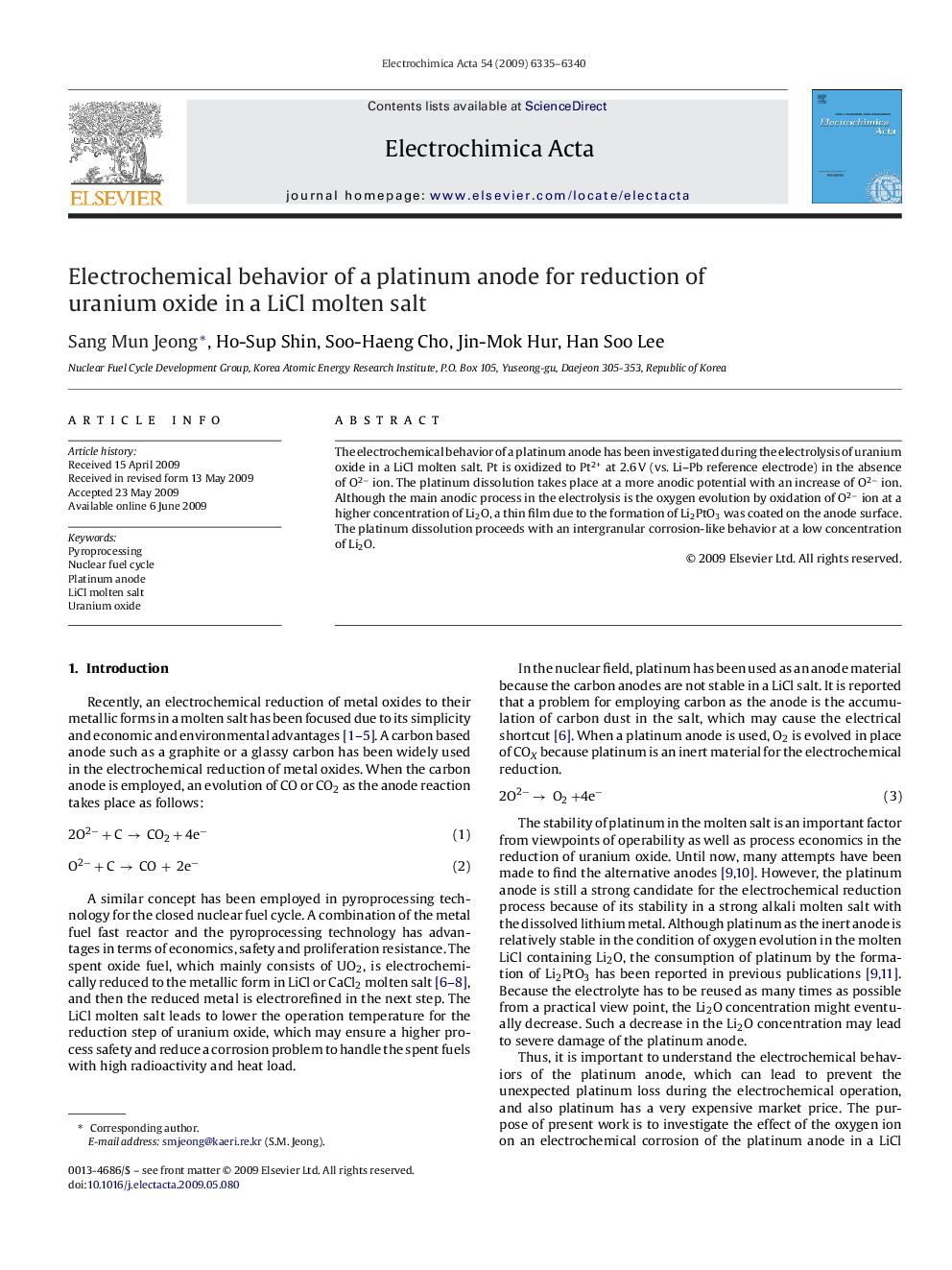| Article ID | Journal | Published Year | Pages | File Type |
|---|---|---|---|---|
| 193205 | Electrochimica Acta | 2009 | 6 Pages |
Abstract
The electrochemical behavior of a platinum anode has been investigated during the electrolysis of uranium oxide in a LiCl molten salt. Pt is oxidized to Pt2+ at 2.6 V (vs. Li–Pb reference electrode) in the absence of O2− ion. The platinum dissolution takes place at a more anodic potential with an increase of O2− ion. Although the main anodic process in the electrolysis is the oxygen evolution by oxidation of O2− ion at a higher concentration of Li2O, a thin film due to the formation of Li2PtO3 was coated on the anode surface. The platinum dissolution proceeds with an intergranular corrosion-like behavior at a low concentration of Li2O.
Related Topics
Physical Sciences and Engineering
Chemical Engineering
Chemical Engineering (General)
Authors
Sang Mun Jeong, Ho-Sup Shin, Soo-Haeng Cho, Jin-Mok Hur, Han Soo Lee,
